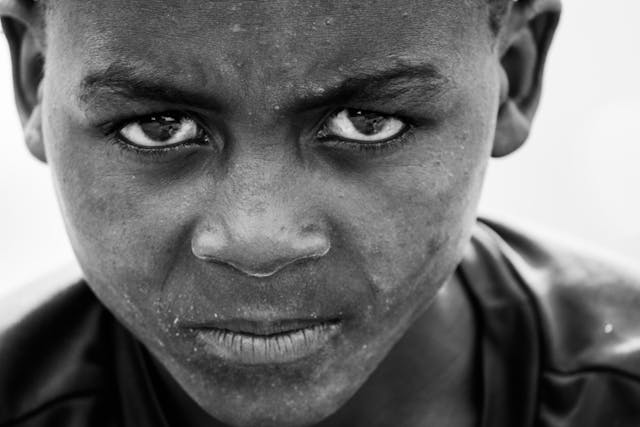The family unit has come to be recognized as the most basic level of human interaction. Throughout the ages and from the dawn of history it has been a given that society cannot function effectively without this most basic level of human relationship. Sociologists, anthropogists, archeologists and historians continually study the family with the goal of improving its efficiency. However, the advent of modernity as we know it is posing a serious threat to the family. The individualistic demeanour of the latter day world order is polarizing and destabilizing the communal status of the family.
As man evolved from his most primal state, needs arose which required satng. Companionship, friendship, camaraderie, protection and security became increasingly vital for survival. The comfort of knowing kin were around made existence more bearable. Of all the aforementioned the relationship between the male and female component of the specie has proved to be the most important. Even with the advances in science it is next to impossible to perpetuate the genus that has one or the other of these two absent or extinct, at least for the present. Exception to this rule could be the Hermaphrodite family which, having both sex organs incorporated into one being, can procreate without needing a partner. For species that depend on partnership for perpetuation it is vital that both elements are in existence. Human perpetuation has depended on this symbiotic relationship between the male and female of the species since its beginnings. And so the family was birthed.
The formation of the family unit is the single most entrenched and ingrained creation of man. In spite of the increased penchant for individualism occasioned by modernity and post modernity, the needs of society simply refuse to allow the jettisoning of this arrangement of nature. Man has found a way to maneuver around the individual streak being exhibited by his descendants of the current hue. More and more people cohabit not in the traditional way of marriage between a man and a woman but in continually stranger and stranger ways. But cohabit as family in one form or the other they continue to do.
For every family there is a need for role delineation. Each member has a role to play in ensuring the efficient running of the unit. It is a given that the man of the house must provide for his home. This is the standard from time immemorial. The expectation however is that other members of the family should do their bit to complement the man’s efforts. This is where the concept of partnership comes in. It is a crucial component of family relations.
In traditional culture, marriage is both for filial as well as economic reasons. It is not enough to be erotically and passionately involved. The entire gamut of existing and surviving is considered in the union.
Considering family roles in Christian marriages, we must look into the very beginning of the concept as captured in the book of Genesis. At the second chapter and verse 21 of Genesis, God made an alteration to creation with the forming of the woman from Adam’s rib because a help meet for him was found to be a necessity. Here, role play effectively began because it was obvious that Adam alone could not cater for the garden of Eden. So, Christianity recognizes and gives a prominent role to the place of responsibility in the home.
Christian parents have the duty of devising roles for the members of the family. After the exit from the garden of Eden, Adam is seen to have assigned roles to his sons. Cain became a tiller of the ground while Abel was a shepherd. In this way the family is kept provisioned. Families have to be structured along the lines of clearly defined areas of responsibility for respective members. Working together in this structured environment helps to engender a spirit of community and safeguards against dysfunctionality.
One important aspect of responsibility in Godly homes is controlled competition. Parents must be careful to control the emotional backlash of competition among their children when it comes to fulfilling their tasks. Esau and Jacob in Genesis chapter 25 give us a classic case of unhealthy competition among siblings. At critical points in the lives of children parents have to be positive guiding influences on them because at that point they are the most significant persons in the children’s lives. There should be no room for partiality and favoritism in Christian homes. The end of such a scenario, as seen in the example before, is bitterness and attrition.
The CUEMATH group highlights some important benefits of parent-child relationships. The group concludes that this relational benefits are vitally important:
i) to influence the personality, life choices and overall behaviour of children;
ii) to help children develop positive relationships; and
iii) to help children perform better academically.
A further breaking down of the roles of parents is given by J. Nell Tift of the Native American Fatherhood and Families Project where he states that fathers have three primary roles viz:
i) provide;
ii) protect; and
iii) discipline.
For the mother her role is much broader in aspect than that of the father. This is not surprising given the significance of a mother in the upbringing of children and the cohesion of the home. A mother’s role as summarized by WHIZ includes:
i) caregiving;
ii) household task management;
iii) emotional support;
iv) connecting with children;
v) conflict resolution;
vi) teaching children etiquette; and
vii) counselling.
All of the foregoing enables children to grow up in the image envisioned by parents for their offsprings. However, an extremely important role of Christian parents is guiding their children in doctrinal truths. We live in a confused and confusing world with so much going on in our communities that tend to obfuscate what the truth is. Christian parents need to be constantly watchful of the influences that shape the belief system of their children. The task, arduous as it is, must be undertaken to ensure that we raise Godly children. Here, a check must be put on children’s exposure to the social media, friends, peers, schoolmates and neighbours. A careless handling of this issue could spell danger as children are easily manipulated to believe in wrong teachings.
Christian parents also have the onerous duty of introducing Christ to their charges at the earliest possible time. As soon as cognition starts in the child every applicable method of indoctrinating the message of Christ must be used. This is expedient as the earlier the child gets hooked on his faith the better instilled in him it will be and the less likely it is for him to deviate from the path.
Christian parents must be praying parents. A home where prayer is absent is not likely to breed God fearing children. At an early age prayer has to be a part of the orientation of Christian neophytes. The efficacy of prayer must be clearly understood by the children. Leading by example in the exercise of faith through observance of prayer makes the task of teaching children prayer as a routine of the faithful less difficult. Children must know and be taught the simple yet profound reliance on God through prayer. The family altar must be made a sacred place of observance of prayer.
An important lesson parents must teach their children is how to love one another. Children must be able to observe this practically in the way their parents relate with each other and others outside the home. Nothing is more indelible in the mind of children as the practical exercise of love and affection between spouses. A relationship of love and mutual respect is beneficial to the building of the home. When children see how well behaved their parents are it tends to help form their opinions with respect to how they treat others. Spousal love, parental love, neighbourliness and kindness are attitudes that parents should pass on to their progenies.
Conclusively, no matter how well parents play their roles in teaching their children it takes grace to be able to succeed at it. Because of the natural instinct of man to be recalcitrant the chances of parents not succeeding in training their children up in the way of the Lord are high. However, it is important to be persistent in the endeavour because the result of failure is usually devastating. Parents, being anchors for their children, must remain resolute to train their children to know God intimately. As such, every element in the process of training, discipling and mentoring children must be used. The role of parents in shaping the life of children is a tough task but one that must be undertaken with love, faith, prayer, diligence, consistency, resilience and total resolve.
























